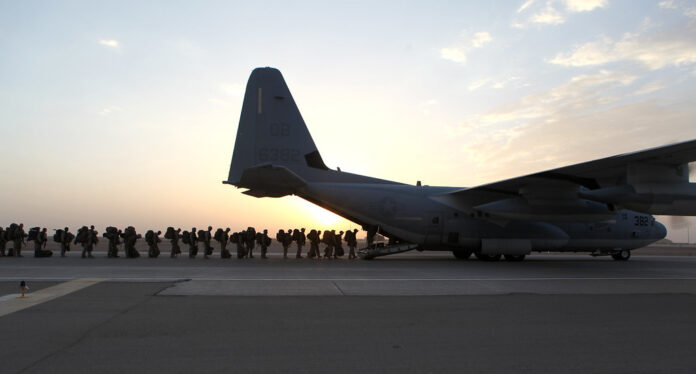The great coalition led by the Us since 2001 to bring democracy to Afghanistan withdraws, defeated by the Taliban fighters.
Joe Biden had promised that he would not pass on the longest war fought by the Us to his successor and he is living up to his commitment. He honestly acknowledges that much of this war was a failure, a bloody failure that cost the lives of nearly 2,500 young Americans. Not to mention the 38,000 Afghan civilian victims, 2.7 million refugees and 4 million displaced persons. The real winners are the Taliban guerrillas who already control about fifty districts in the country and are advancing rapidly towards Kabul.
In the arduous negotiations, concluded in February 2020, the Us administration obtained from the counterpart the commitment not to give space to Al Qaeda, the terrorist organization that with the attack on the Twin Towers on September 11th, 2001 had triggered the conflict weeks later. The Taliban have also pledged not to close schools to women and to avoid bloody reprisals against the collaborators who have worked for the Americans in the past 20 years. Anyway, nobody believes it.
In fact, the withdrawal of the Us and its allies leaves room for a civil war, already underway, between what would be the official – but not real – government of the country and the Taliban formations. Biden wanted the end of the war to coincide with the twentieth anniversary of 9/11. However, he also said there will be nothing to celebrate and, if anything, a lot to think about. On the ground, the situation is precarious and national reconciliation looks like a chimera, good for optimists at all costs.
If we then consider that Afghanistan borders Iran, Pakistan, and China, it is quite unlikely that the governments of these countries will refrain from exerting their influence on the warring parties. And to say that with tragic irony the military mission in 2001 was called “Lasting Peace“.
Missione incompiuta
La grande coalizione guidata dagli Usa dal 2001 per portare la democrazia in Afghanistan si ritira, sconfitta dai combattenti talebani.
Joe Biden aveva promesso che non avrebbe lasciato in eredità al suo successore la più lunga guerra combattuta dagli Usa e fa fronte al suo impegno. Onestamente riconosce che si è trattato in buona parte di un fallimento, un sanguinoso fallimento che è costato la vita a quasi 2.500 giovani americani. Per non parlare delle 38.000 vittime civili afghane, dei 2,7 milioni di profughi e dei 4 milioni di sfollati. I veri vincitori sono i guerriglieri talebani che controllano già una cinquantina di distretti nel Paese e avanzano rapidamente verso Kabul.
Nelle faticose trattative, concluse a febbraio 2020, l’Amministrazione americana ha ottenuto dalla controparte l’impegno a non dare spazio ad Al Qaida, l’organizzazione terroristica che con l’attacco alle torri gemelle dell’11 settembre 2001 aveva scatenato il conflitto qualche settimana dopo. I talebani si sono anche impegnati a non chiudere le scuole alle donne e a evitare sanguinose rappresaglie contro i collaborazionisti che in questi ultimi 20 anni hanno lavorato per gli americani. Ma nessuno ci crede.
Di fatto il ritiro degli Usa e degli alleati lascia spazio a una guerra civile già in atto fra quello che sarebbe il governo ufficiale – ma non reale – del Paese e le formazioni talebane. Biden ha voluto che la fine della guerra coincidesse con il ventennale dell’11 settembre. Ma ha anche detto che non ci sarà nulla da festeggiare e, casomai, molto da riflettere. Sul campo la situazione è precaria e la riconciliazione nazionale appare come una chimera, buona per gli ottimisti a tutti i costi.
Se poi consideriamo che l’Afghanistan confina con l’Iran, il Pakistan e la Cina, è piuttosto improbabile che i governi di questi Paesi si astengano dall’esercitare la loro influenza sulle parti in conflitto. E dire che con tragica ironia la missione militare nel 2001 era stata denominata «Pace duratura».








